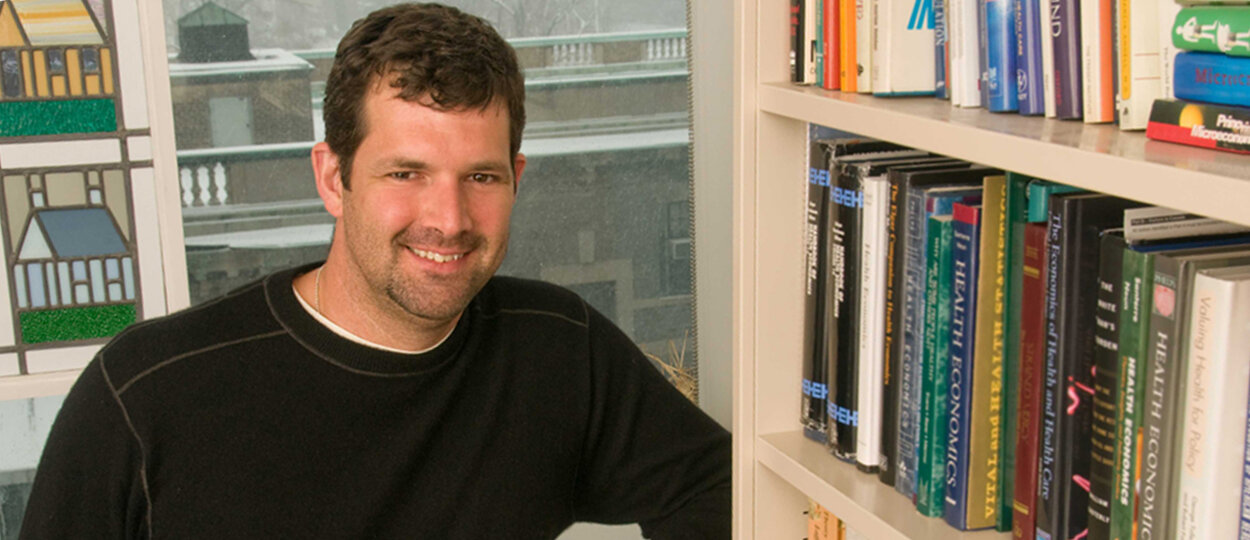New analysis from Paul Grootendorst recommends approaches to generate fast, reliable supply of pandemic vaccines
In late 2020, as Canadians watched other countries receive COVID-19 vaccines and waited for Canada’s supply to arrive, academics and politicians began calling for the formation of a public agency that could produce pandemic vaccines domestically.
But Paul Grootendorst, Associate Professor at U of T’s Leslie Dan Faculty of Pharmacy, says that such an agency would not necessarily result in quicker access to vaccines and would come with many challenges. In a paper recently published by the C.D. Howe Institute, he describes alternative approaches to increase vaccine production capacity during another pandemic.
“Vaccine production is very complicated and requires a lot of lead time. Moreover, different vaccines require different production platforms and it is unclear which platform will be required for the next pandemic vaccine,” says Grootendorst. “In this analysis, we wanted to add a different perspective that highlighted the complexity of the issue.”
Grootendorst worked with coauthors Michael Schunk and Robert Van Exan (listen to Dr. Van Exan's interview on the I'm Pharmacy Podcast), who have more than 60 years of experience combined in the vaccine production industry, as well as post-doctoral fellow Javad Moradpour, to outline the challenges a public vaccine agency would face and recommend other, more cost-effective approaches.
They describe how the high failure rates of vaccine candidates and the logistical difficulties in launching a large clinical trial, especially in a short period of time, would make vaccine development an expensive endeavour for a public agency, with a significant risk that no vaccine candidate would emerge.
Even if the agency focused only on licensing and producing a pandemic vaccine developed elsewhere, keeping a dedicated pandemic vaccine facility ready for production with the required expertise and supply lines would be challenging.
“You can’t switch on a production facility at will, and it’s hard to quickly pivot to producing vaccines,” says Grootendorst. “If you want to play the game and be a vaccine producer, you have to have a fair amount of experience or initiative in doing commercial-scale production and be able to do clinical testing.”
Tapping into existing vaccine production infrastructure could ensure reliable supply at lower cost
Instead, Grootendorst and his coauthors recommend partnering with existing commercial vaccine producers in Canada.
This could be done by having contracts with current vaccine manufacturers to purchase reserve capacity, for example, paying for manufacturers to have extra, idle capacity that can be activated to produce a pandemic vaccine or paying manufacturers to maintain stockpiles of the vaccines they normally produce to draw from if they switch to making a pandemic vaccine.
Another approach that could be used for some types of vaccines is to build modular production facilities adjacent to existing facilities that would sit idle when not needed but could be quickly and easily activated by tapping into existing utilities and infrastructure.
They argue that tapping into the existing expertise and facilities of the existing large manufacturers would ramp up production of a pandemic vaccine quickly and result in a more reliable supply of vaccines at a lower cost than developing a new dedicated facility.
While Canada’s supply disruption was short-lived and attention is now focused on increasing the number of Canadians receiving third and fourth doses, Grootendorst says that it is important to start preparing for another pandemic now, especially since vaccine production requires long lead times.
Since 2000, six major viral outbreaks have occurred globally – including SARS, Ebola and Zika – and the likelihood of another pandemic in our lifetimes is high. If vaccination is to be a key strategy to fight viral outbreaks, we need to be ready, not just for Canadians but people around the world.
“We need to think about amping up vaccine production globally so that we can immunize as many people as possible as quickly as possible,” says Grootendorst. “When large swaths of the population of other countries are unvaccinated, that’s a breeding ground for variants, so we need to make sure that people everywhere can be vaccinated. This is one of the major global issues we are facing.”
More News
Image

Team GloveLift wins 2025 Business Plan Competition with innovative medical device
PharmD students win $5,000 prize for their innovative medical device concept aimed at improving patient care.
Read More
Image

Faces of PharmSci: Kinda Karra
MScPhm student Kinda Karra, working with Clinician Scientist Carlo DeAngelis, is studying why some breast cancer patients experience pain after chemotherapy and how a small blood sample could help detect signs of this reaction.
Read More
Image

Trade tariffs on pharmaceuticals ‘not the way to go’: U of T expert releases new study showing disruptions and cost increases
Trade tariffs on Canadian pharmaceuticals expected to increase costs in the U.S. and strain drug supply chains.
Read More
